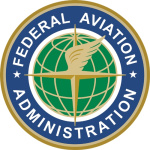- Industry: Government
- Number of terms: 35337
- Number of blossaries: 0
- Company Profile:
Electronic navigation equipment in which the flight deck instrument identifies the radial or line from the VOR station, measured in degrees clockwise from magnetic north, along which the aircraft is located.
Industry:Aviation
A measure of altitude (in hundreds of feet) used by aircraft flying above 18,000 feet with the altimeter set at 29.92 "Hg.
Industry:Aviation
The angular difference between the aircraft heading and the direction to the station, measured clockwise from the nose of the aircraft.
Industry:Aviation
A method of attitude instrument flying in which one instrument is used for making attitude changes, and the other instruments are used to monitor the progress of the change.
Industry:Aviation
A movable auxiliary airfoil on the leading edge of a wing. It is closed in normal flight but extends at high angles of attack. This allows air to continue flowing over the top of the wing and delays airflow separation.
Industry:Aviation
The central cavity of the bony labyrinth of the ear, or the parts of the membranous labyrinth that it contains.
Industry:Aviation
Provides pilot and crew with highly accurate and automatic long-range navigation capability, blending available inputs from long- and short-range sensors.
Industry:Aviation
Also known as the fixed-card ADF, zero is always indicated at the top of the instrument and the needle indicates the relative bearing to the station.
Industry:Aviation
A display interfaced with the master computer, providing the pilot with a single control point for all navigations systems, thereby reducing the number of required flight deck panels.
Industry:Aviation
Small screen (CRT or LCD) in an aircraft that can be used to display information to the pilot in numerous configurable ways. Often an MFD will be used in concert with a primary flight display.
Industry:Aviation
